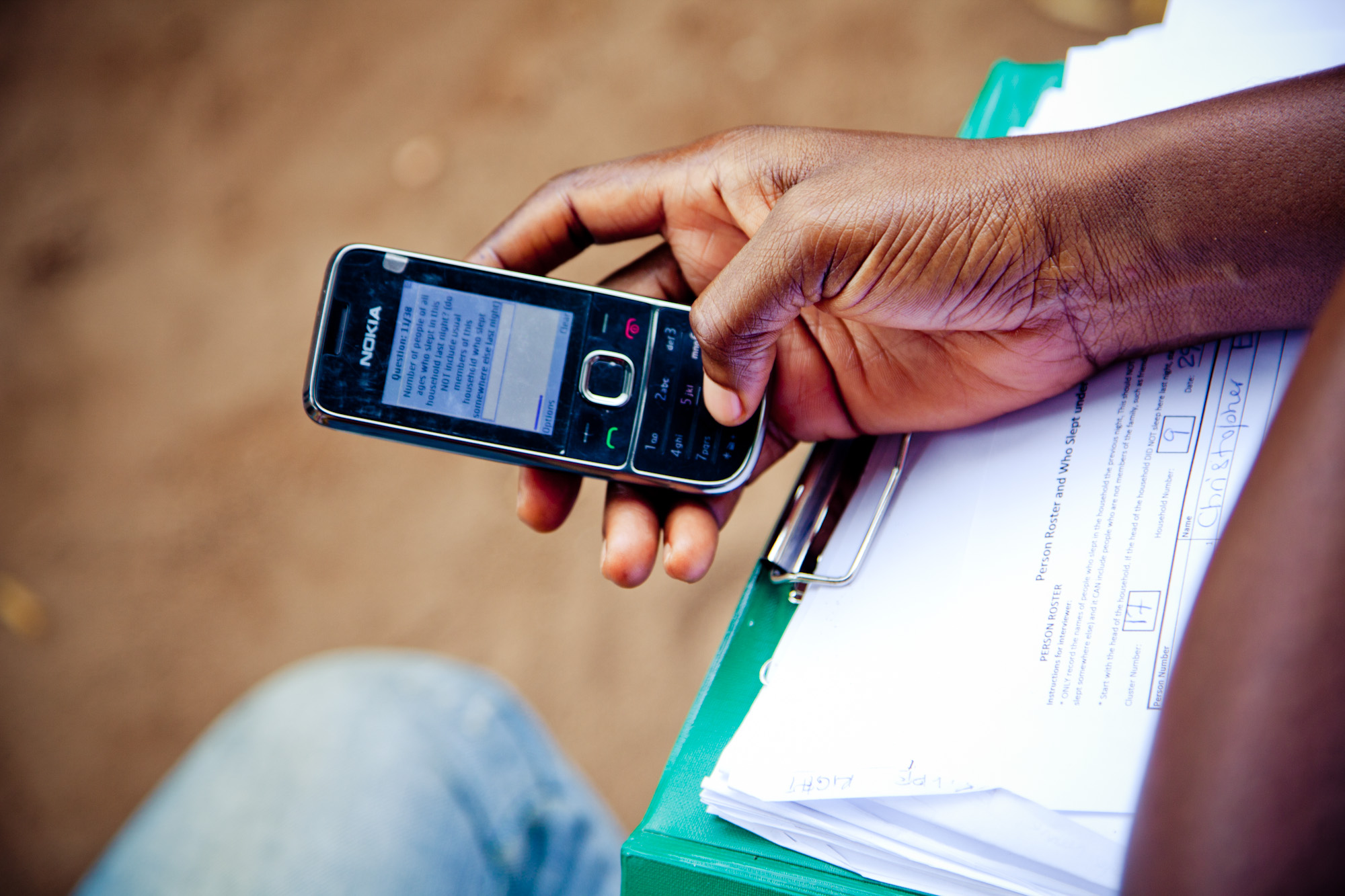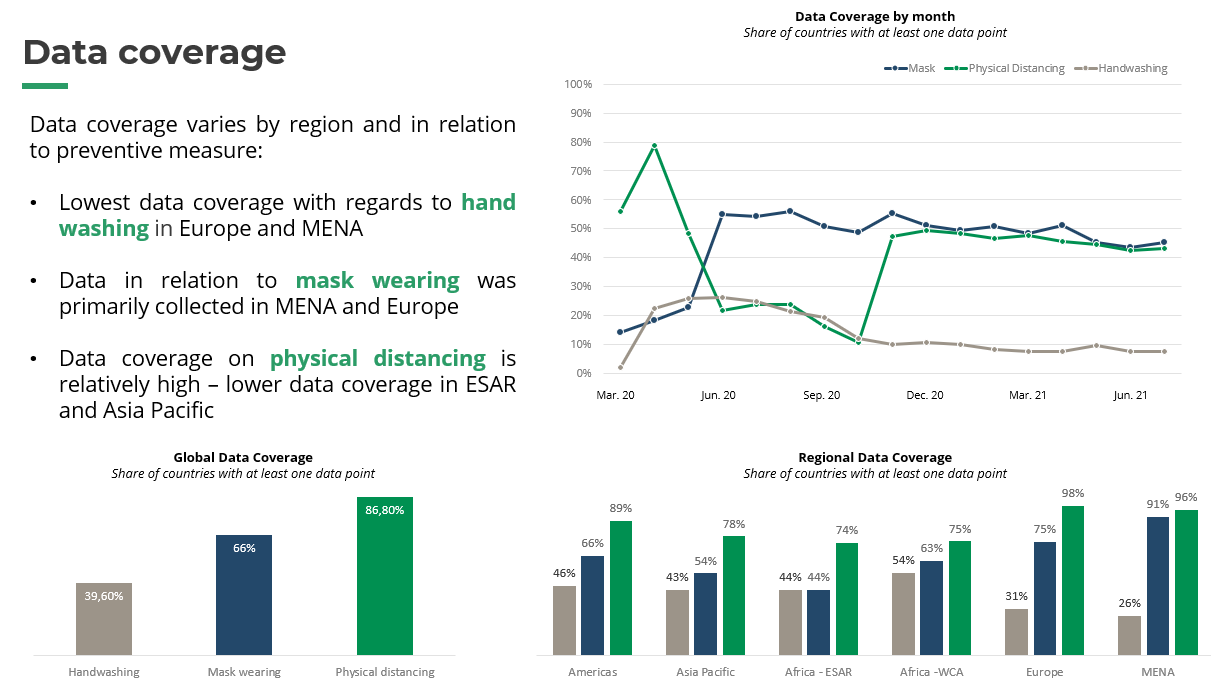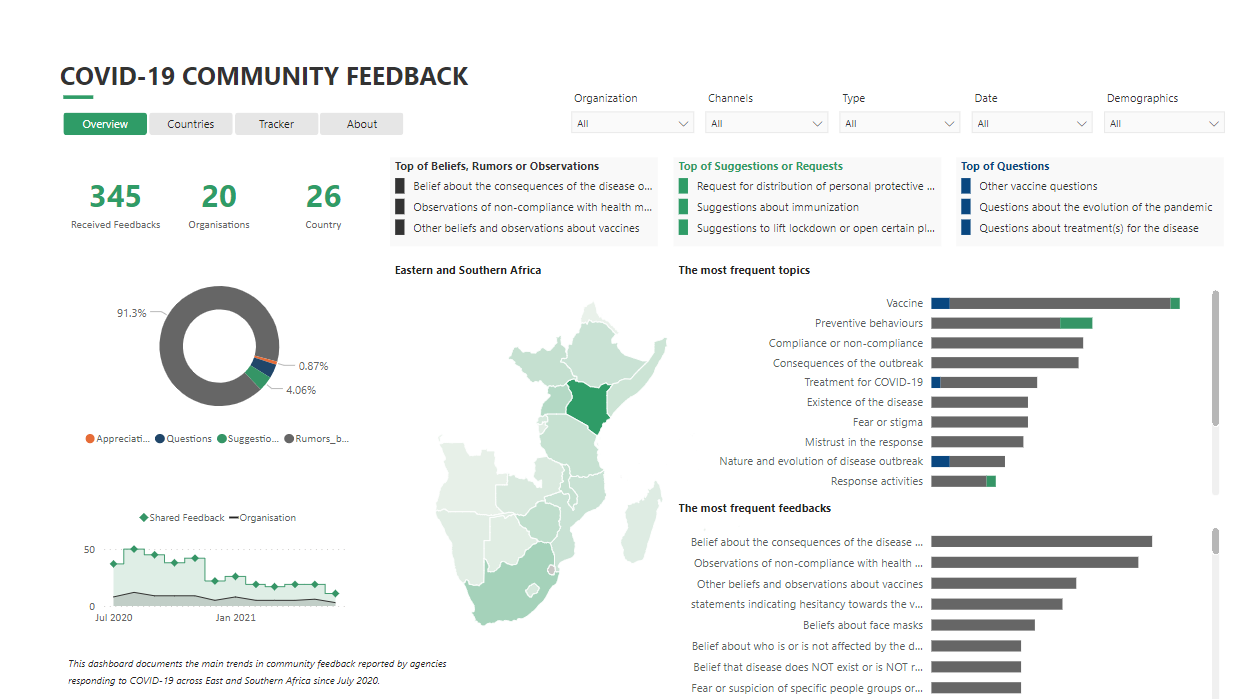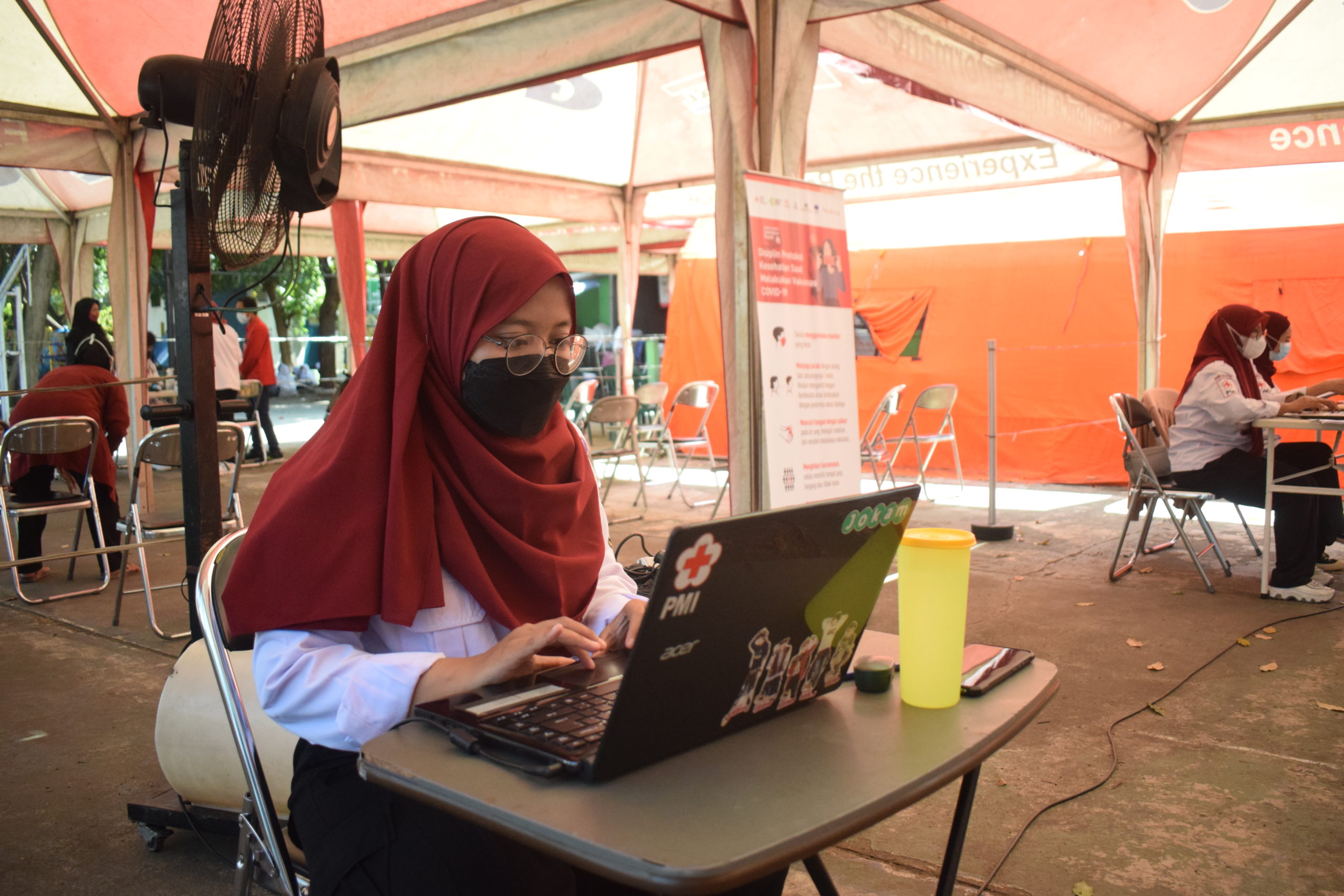Information Management
The Collective Service provides the Information Management Service to strengthen evidence generation, which helps RCCE programme design and informs the decision making process at global, regional and country level.
WHY INFORMATION MANAGEMENT?
The Information Management Service is supporting RCCE activities through improving data collection and collation, creating data management standards, data analysis, and supporting the dissemination of information. The IM team provides technical guidance, design and implementation support, and training to strengthen existing information systems or develop responsive solutions for RCCE partners at country or regional levels.
The team works with direct support from global and regional teams, and outsourced technical support with service providers or IM stand-by partnerships.
Thematic areas:
- Coordination
- Monitoring
- Social Science
- Feedback and accountability

OBJECTIVES
Data compilation
Define data standards and create databases to support evidence generation on community engagement for public health emergencies
Data Management
Design a data management approach to implement, store, organize and maintain large and complex datasets on social behavioural or community feedbacks.
Data analysis
Identify robust and innovative methods and tools for interpreting data through explanatory or predictive analysis and generating trends and evidence.
Tools development
Design generic information management tools based on in-country experience in order to accelerate and scale-up information management for community engagement
LATEST PRODUCTS
Community Feedback Mechanism Tracker
he Community Feedback Mechanism (CFM) Tracker monitors community feedback mechanisms led by the Collective Service’s Partners.

Data Snapshots
Data snapshots providing a timely review of the epidemiological situation and indicators from quantitative and qualitative studies.

ESAR Community feedback Dashboard
This dashboard compiles feedbacks from multiple partners from the eastern and southern african countries.
TRAINING
Resources for systematically listening and responding to communities
This package developed by IFRC was put together to provide you with the tools and guidance you need to set up mechanisms for systematically listening and responding to communities in our response to COVID-19. Our resources have a focus on practical and simple ways to listen and respond to feedback received from community members during face to face or remote social mobilization activities, via social media or WhatsApp.

REQUEST SUPPORT
Any questions or your work request a specific support on information management on RCCE, please reach out our team or explore the collective Helpdesk.
Contact us by e-mail with your quieries
Knowledge Base
See our knowledge base for answers to FAQs
Contact form
Submit your RCCE queries in detail here

